What Does A Siberian Husky Cost? (2025 Puppy Prices)
So you’re thinking of adding a Siberian Husky to your household! Good for you! They are gorgeous, magnificent-looking dogs whose regal statures belies their goofy, often comical personalities.
The cost of a Siberian Husky depends almost entirely on where you get them. Adopting from a rescue group or shelter will cost significantly less than getting one from a reputable breeder. Adoption fees typically range from $200 to $500 depending on the age and health of the dog.

Getting one from a reputable breeder with all their AKC papers and health certifications will cost about $1,000 to $2,500.
Be very wary of anyone charging less than that or selling their dogs on free sites like eBay and craigslist. Puppy mills are getting cleverer at disguising themselves as ethical breeders, and the last thing you ever want to do is buy a dog from a puppy mill.
In this blog post, we’ll look at all the ways you can get your new Siberian Husky bestie, what to look out for, and all the costs involved.
Adopt, Don’t Shop!
The Siberian Husky is a beautiful and enduring dog breed. Nearly identical in appearance to their wolf ancestors, these stunning dogs were bred by nomadic tribes in the northernmost parts of Siberia more than 3,000 years ago. Their incredible double coat gives them the ability to survive and thrive in temperatures as low as -80°F.
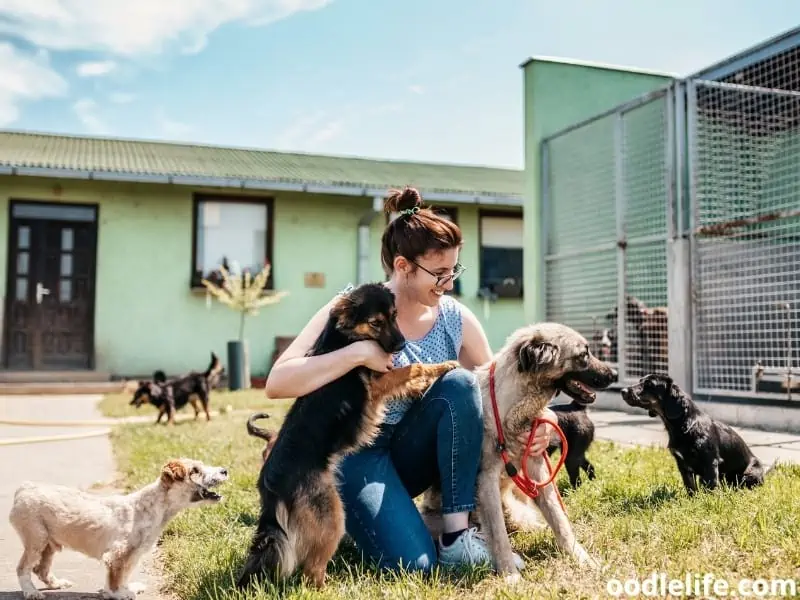
However, they have remarkably high energy levels and can be stubborn. They are not suitable for certain households that have sedentary lifestyles as they need plenty of exercise to keep them happy.
In addition, they are prone to separation anxiety and can whine and howl all day if their owners are gone for long periods. A bored and understimulated Husky can exhibit many destructive behaviors like chewing and digging, and because of their size, stamina, and strength, they can cause some serious damage to your house, yard, and furniture!
Because of these reasons, many Huskies find themselves in shelters when their owners realize that they have bitten off more than they can chew.
Before looking to buy a Husky from a breeder, you might want to check rescue groups and centers first. Not only will you be saving a ton of money, but you may also be saving a life.
Adopting a dog from a shelter is one of the most humane and rewarding experiences available. First and foremost, you are providing a home to an animal in need that would still be homeless otherwise.
You’ll have ample opportunities to get to know each animal individually and understand the unique characteristics that some may have before making your choice of companion. Furthermore, many shelters will even provide veterinary care for the dog before adoption as well as spay or neuter procedures and vaccinations.
Not only will these services spare adopters hundreds if not thousands of dollars on up-front hospital costs, but such preventive measures also ensure a much healthier lifestyle for newly adopted dogs.
Adopting a shelter Husky offers an amazing opportunity to not only give an animal in need the life they deserve, but it’s also an incredible chance to come home with an established and loving companion.
How To Find A Reputable Siberian Husky Breeder?
Finding a reputable, responsible breeder can be a challenge. There are all sorts of people out there who will take advantage of the fact that you want a purebred dog and charge you an exorbitant fee for a pet that may not be healthy or well cared for.
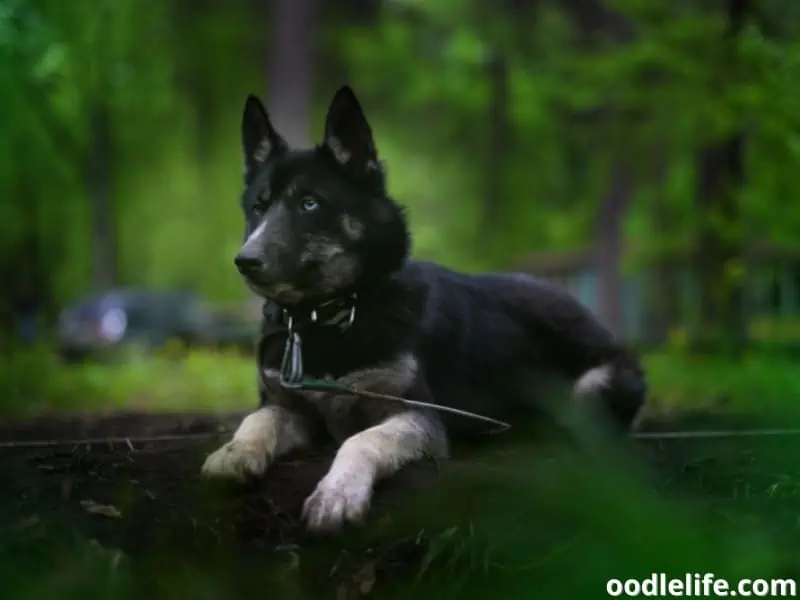
The internet is your friend when it comes to researching breeders. Look for websites with detailed information about their breeding practices and health guarantees, as well as photos of their puppies and adult dogs.
Also, check with doggy professionals in your area like trainers and vets that can provide some insight into the reputable breeders around you. Good breeders should also have plenty of reviews from other customers who have purchased puppies from them in the past. Ask plenty of questions, and be prepared to answer many of the same.
Once you’ve narrowed down your search, it’s time to visit the breeder. A reputable breeder will insist on meeting potential buyers in person so that they can get an idea of what kind of home their puppies will be going into.
During this visit, pay attention to how the dogs are treated and cared for. Are they clean? Well-fed?
Do they appear healthy? Is there adequate space for them to move around? These are all signs of a good breeder who cares about their animals.
Once you’ve got a good idea of what the breeder is about, ask about health guarantees. A quality breeder should provide some sort of health guarantee for their puppies, which covers any medical issues that may arise after purchase.
Additional Costs Of Owning A Siberian Husky
Now that you’ve figured out where to get your new Siberian Husky family member from, the costs will continue to add up! Here’s what you need to budget for before bringing your Husky home.
1. Dog Supplies
You’ll need plenty of dog supplies.

Here is the barest minimum and their estimated costs:
Food
Huskies are incredible athletes that need top-quality nutrition. You can expect to pay about $400 to $1,000 a year on food.
Collar and Leash
Huskies are incredibly active dogs that do best with a minimum of an hour a day of exercise, preferably two hours. You’ll need a collar and leash to take your Husky for a walk or run. Depending on the type, you can expect to pay about $10 to $20 for a collar and $20 to $30 for a leash.
Grooming Supplies
Huskies are relatively low-maintenance dogs but you’ll need to maintain a grooming routine to keep them in tip-top shape.
Coat – Your Husky will shed, LOADS! You will need a bristle brush and an undercoat rake. Both of these will cost about $40 in total.
Nails – You’ll also need a nail clipper which will cost about $15 to cut down their nails. Regularly trimming the nails of your dog is essential for their overall health and well-being. The shape and length of the nails impact your canine companion’s posture and gait, leading to pain and discomfort in addition to potentially causing joint issues in the long term that can negatively affect their quality of life.
Eye and Ear Cleaner – Without proper attention to these areas, dirt, debris, and even infection could quickly become serious – or worse. Regularly cleaning the external ear canals with an appropriate cleaner and cotton ball helps prevent damage caused by bacteria or wax build-up.
Likewise, frequent cleaning of the eye area can reduce the risk of infection. Plus, removing dirt and debris from both areas will ensure your beloved Husky looks great too. Vet-approved cleaners will cost about $10 to $20 each but a bottle will last you many months, if not years.
Shampoo – Huskies are relatively clean dogs that don’t need frequent baths, but you’ll still have to scrub them once in a while. Use a natural, organic shampoo with minimal chemicals to care for your Husky’s glorious coat. A good shampoo would cost about $20.
2. Vet Care
When it comes to keeping your beloved Husky healthy, you will need to factor in vet care. Your Husky will need to be kept up with the vaccination schedule, and if you’ve bought or adopted a puppy, he or she is likely to have a final round of vaccinations left which can cost about $100 to $200.
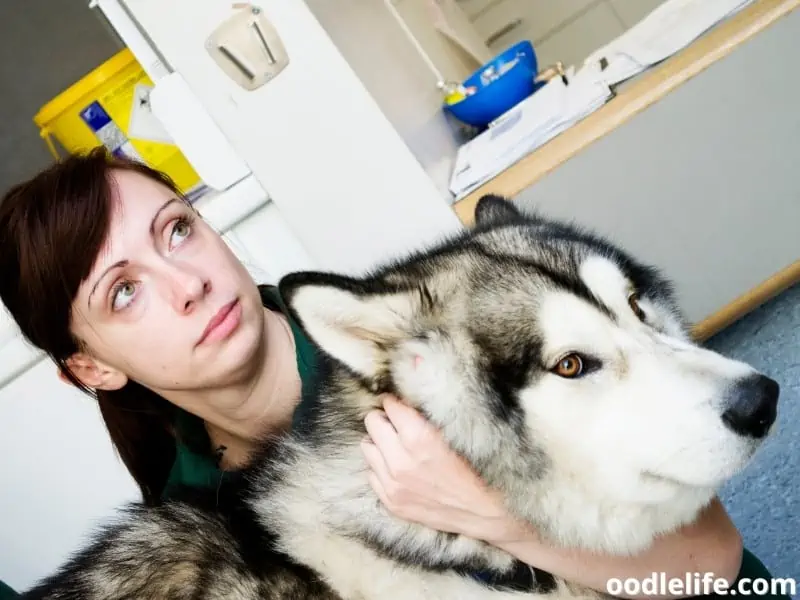
In addition, if you are intending to spay or neuter your Husky, the surgery will cost about $400 to $600. Adopting a dog usually means it is already spayed or neutered, so that’s another reason to adopt!
Huskies are relatively healthy dogs but despite this, they still run into health problems from time to time. Depending on the difficulty or complexity of the medical issue at hand, vet bills for a Husky can range in price significantly. Routine checkups and vaccinations tend to be relatively affordable, while additional tests and unidentified concerns such as health problems or illness can often run up the bill.
Hip dysplasia is common in the breed, so it’s important to stay on top of regular checkups for early detection. Osteochondritis dissecans (OCD) can also affect Siberian Huskies and should be monitored through X-rays every 6 months throughout their growth period.
Additionally, eye problems such as corneal dystrophy, cataracts, and progressive retinal atrophy can occur in this breed later in life.
3. Pet Insurance
If the cost of veterinary care scares you, you can also think about pet insurance to cover the medical costs and any unforeseen circumstances.
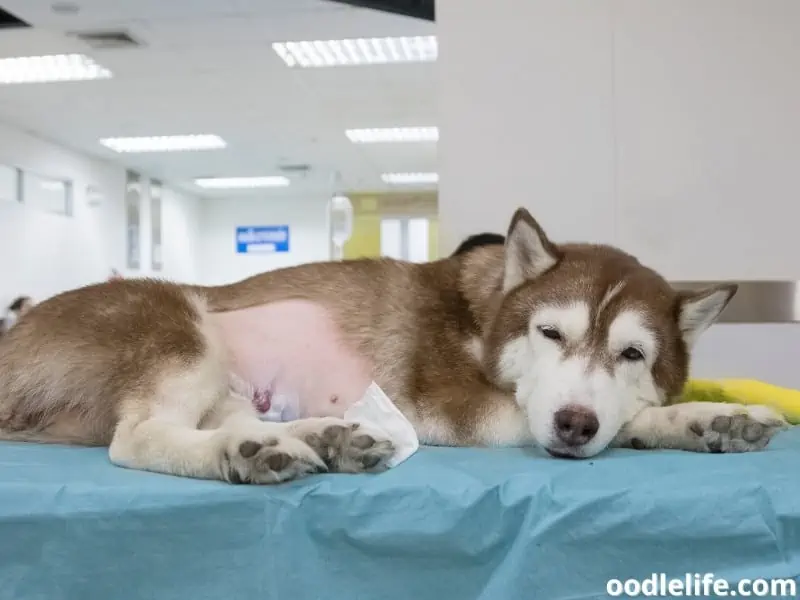
Depending on the plan, you can expect to pay about $30 to $100 a month on insurance.
4. Training and Obedience
As previously mentioned, Huskies tend to be stubborn and they have a mind of their own. You’ll need early socialization and firm, consistent training to keep your Husky a well-behaved member of the family.
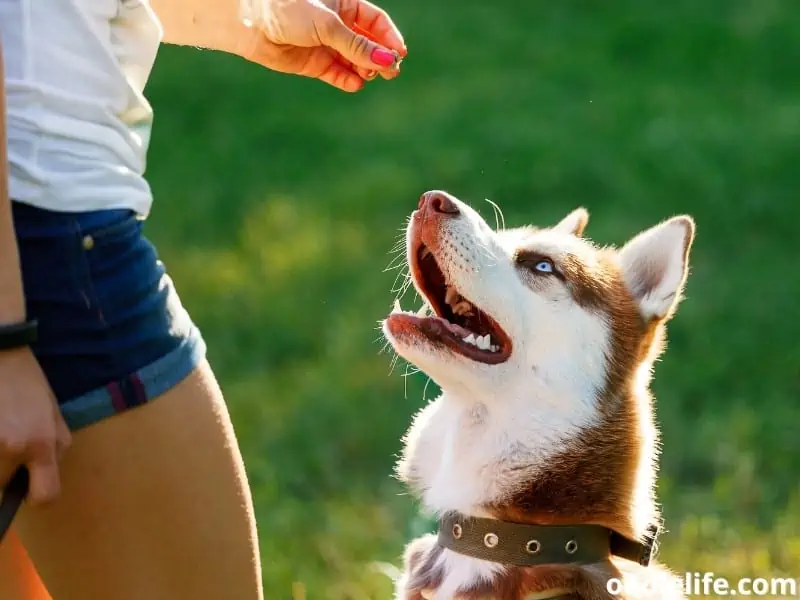
Dog training can be pricey, but if you feel that your Husky is getting out of control and you need the help of a professional, you might want to think about sending your pooch to school. Classes cost about $30 to $80, with the average being about $50 an hour for group training.